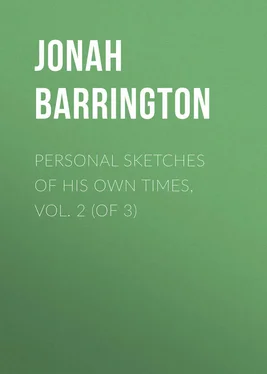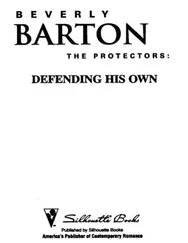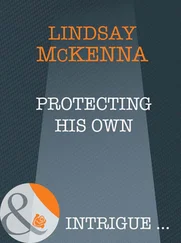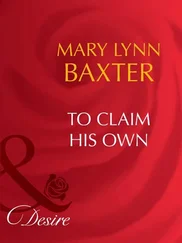Jonah Barrington - Personal Sketches of His Own Times, Vol. 2 (of 3)
Здесь есть возможность читать онлайн «Jonah Barrington - Personal Sketches of His Own Times, Vol. 2 (of 3)» — ознакомительный отрывок электронной книги совершенно бесплатно, а после прочтения отрывка купить полную версию. В некоторых случаях можно слушать аудио, скачать через торрент в формате fb2 и присутствует краткое содержание. Жанр: foreign_antique, foreign_prose, на английском языке. Описание произведения, (предисловие) а так же отзывы посетителей доступны на портале библиотеки ЛибКат.
- Название:Personal Sketches of His Own Times, Vol. 2 (of 3)
- Автор:
- Жанр:
- Год:неизвестен
- ISBN:нет данных
- Рейтинг книги:4 / 5. Голосов: 1
-
Избранное:Добавить в избранное
- Отзывы:
-
Ваша оценка:
- 80
- 1
- 2
- 3
- 4
- 5
Personal Sketches of His Own Times, Vol. 2 (of 3): краткое содержание, описание и аннотация
Предлагаем к чтению аннотацию, описание, краткое содержание или предисловие (зависит от того, что написал сам автор книги «Personal Sketches of His Own Times, Vol. 2 (of 3)»). Если вы не нашли необходимую информацию о книге — напишите в комментариях, мы постараемся отыскать её.
Personal Sketches of His Own Times, Vol. 2 (of 3) — читать онлайн ознакомительный отрывок
Ниже представлен текст книги, разбитый по страницам. Система сохранения места последней прочитанной страницы, позволяет с удобством читать онлайн бесплатно книгу «Personal Sketches of His Own Times, Vol. 2 (of 3)», без необходимости каждый раз заново искать на чём Вы остановились. Поставьте закладку, и сможете в любой момент перейти на страницу, на которой закончили чтение.
Интервал:
Закладка:
I could not but start on hearing all this, and declined entering at all into the business with Mr. Otway till George had given me a written license to communicate with him as I pleased. He acceded to all I desired, and the next morning I waited on that gentleman – (Mr. Cooke Otway, of Castle Otway).
I never felt more embarrassed in my life than at this interview. I had in the interim made myself master of Mr. Otway’s character, and the knowledge by no means contributed to ease my scruples or diminish my embarrassment. However, to my surprise, a very short time disposed of both, and in a way which I had heretofore conceived quite impossible.
I found Colonel Cooke Otway a strong-minded, decided, gentlemanly man, obviously with more head than heart, – sensible, and practically good-natured; – in short, one of those well-trained persons who appear to be quite off-handed, yet, on closer remark, are obviously in reservation .
He introduced me to Mrs. Otway, whose character required no research. It was ordinary, but amiable: she had evidently great kindness of heart, and her conduct was uniformly reported to be such as left nothing to amend either as wife or mother: she appeared to be in declining health, whilst her daughter, in the full bloom of youth and first blush of ripening beauty, presented a striking contrast.
I also read, as far as its hitherto slight development would admit, the character of Maria Otway. I could perceive neither the languor of love nor the restlessness of suspense at all predominant in her feelings. Perfect ease and entire resignation appeared to sit most cheerfully on her brow: she seemed voluntarily to consider the wish of her parents as the rule of her destiny; and it was perceptible that Hartpole had the love entirely at his own disposal.
Maria united in her appearance, her manners, and her obvious disposition, most of those amiable and engaging traits which the age of eighteen can develope in a female. – Her figure, in height rather below the middle stature, had arrived at that proportionate fulness which forms the just medium between the round and slender, and without the defects of either gives the advantages of both. Her limbs, cast in the mould of perfect symmetry, moved with that ease and moderate activity which constitute the natural grace of female action. Her features small, and not justifying the epithet of “beautiful,” yet formed in their assemblage a blooming and expressive index of the young heart that ruled them: the imperfections of the profile were lost in the brilliant delicacy of the complexion which embellished it. Her blue eyes were untutored; but her smile was intoxicating; and my friend was bound and fettered in the trammels of female witchery.
In my own judgment, Maria Otway was certainly at that time a most interesting young female: still her beauty, obviously aided by youth, health, and thoughtless happiness, was not of that animated and vigorous cast on which we so often see neither time, care, nor age make quick impression: it was, on the other hand, that soft and delicate loveliness to which years and family are such inveterate and sometimes rapid enemies.
Over such a person as Hartpole, the victory of Miss Otway’s beauty was complete; and the result of that unfortunate passion convinces me that a man (unless his judgment be superior to his sensibility) cannot commit an act of greater folly than to encourage an attachment to any woman whom he thinks every body else must admire as well as himself. George at first was inclined to resist his passion, but he did not fly from the cause of it , and he therefore fell a victim to romantic love as he had before done to romantic gratitude.
Mr. Otway at once opened the business, and told me Hartpole had referred him to me for a statement of his estates and financial situation. On this point I had come fully prepared. Hartpole’s circumstances exceeded rather than fell below Mr. Otway’s expectation.
“I am quite satisfied, my dear sir,” said he to me, with a significant nod; “you know that in Ireland we always make some allowances for the Stratford consanguinity.”
I now found my embarrassment recommence, but determined, at every risk, to free myself from all future responsibility or reproach: I therefore informed Col. Otway explicitly of Hartpole’s marriage, and that no sentence had as yet been pronounced to declare that marriage a nullity, though in point of law it was so.
Having heard me throughout with the greatest complacency, he took me by the hand: – “My dear sir,” said he with a smile which at first surprised me, “I am happy to tell you that I was fully apprised, before I came to Ireland, of every circumstance you have related to me as to that woman, and had taken the opinions of several eminent practitioners on the point, each of whom gave without any hesitation exactly the same opinion you have done: my mind was therefore easy and made up on that subject before I left England, and I do not consider the circumstance any impediment to the present negotiation.”
It is not easy to describe the relief thus afforded me; though, at the same time, I must own I was somewhat astonished at this seeming nonchalance . We parted in excellent humour with each other, and I believe he was my friend to the day of his death.
The negotiation went on: Miss Sleven was no more regarded; and after a deal of discussion, but no difference of opinion, the terms were agreed on, and settlements prepared, for a marriage, in all its results as unfortunate for the young people, and as culpable in the old , as any that ever came within my recollection.
A circumstance of singular and not very auspicious nature occurred on the first step toward the completion of that ill-starred alliance. It was necessary to procure a license from the Prerogative Court for the solemnization of the marriage in the city of Dublin, and Hartpole’s uncle, the Honourable Benjamin O’Neil Stratford (now Earl of Aldborough), attended with George upon Doctor Duigenan, then judge of the prerogative, for that purpose.
The doctor (who when irritated was the most outrageous judge that ever presided in a court of justice) was on the bench officiating upon their arrival. Benjamin conceived that his rank and intimacy with the doctor would have procured him at least common civility; but in this he was egregiously mistaken.
Benjamin O’Neil Stratford, who attended his nephew on that dangerous expedition, was endowed with several good-natured qualities, but, as folks said, rather inclined to the pleasures of litigation . In every family which is not very popular, there is always one, of whom people in general say, “Oh! he is the best of them :” and this was Benjamin’s reputation as to the Stratford family. 16 16 The noble Earl had then also the appellation of “Blind Ben,” which had been conferred on him by the agreeable and witty Lady Aldborough, and which ought not to have been by any means considered derogatory, inasmuch as his name is certainly Benjamin , and one of his eyes is actually “ not at home ;” and as the abrupt mode of its quitting his Lordship’s service was rather humorous, it may be amusing to mention it. He had once (as he thought) the honour of killing a crane. Benjamin’s evil genius, however, maliciously scattered the shot, and the crane had only been what they call in Ireland kilt ; but feeling pretty sure that her death was determined on, she resolved to die heroically, and not unrevenged. She fell, and lying motionless, seduced her assassin to come and wring her head off, according to the usual rules and practice of humanity by fowlers. The honourable sportsman approached triumphantly, and stooping to seize the spolia opima , Madam Crane, (having as good eyes of her own as the one that took aim at her,) in return for his compliment, darted her long bill plump into the head of the Honourable Benjamin O’Neil Stratford, entering through the very same casement which he had closed the shutters of to take his aim . In fact, she turned the honourable gentleman’s eye clean out of its natural residence; and being thus fully gratified by extinguishing the light in one of her enemy’s lanterns, she resigned her body to be plucked, stuffed, and roasted, in the usual manner, as was performed accordingly. Thus, though her slayer was writhing in agony, his family was fully revenged by feasting on his tormentor . Daily consultations were held to ascertain whether her long rapier had not actually penetrated the brain of the Honourable Benjamin. One of the tenants being heard to say, in a most untenant-like manner, that it might in such case be all for the best , was asked his reason for so undutiful an expression; and replied, that if she had just pricked his honour’s brain, maybe it might have let out the humours , which would have done no harm either to his honour or to Baltinglass.
Интервал:
Закладка:
Похожие книги на «Personal Sketches of His Own Times, Vol. 2 (of 3)»
Представляем Вашему вниманию похожие книги на «Personal Sketches of His Own Times, Vol. 2 (of 3)» списком для выбора. Мы отобрали схожую по названию и смыслу литературу в надежде предоставить читателям больше вариантов отыскать новые, интересные, ещё непрочитанные произведения.
Обсуждение, отзывы о книге «Personal Sketches of His Own Times, Vol. 2 (of 3)» и просто собственные мнения читателей. Оставьте ваши комментарии, напишите, что Вы думаете о произведении, его смысле или главных героях. Укажите что конкретно понравилось, а что нет, и почему Вы так считаете.












